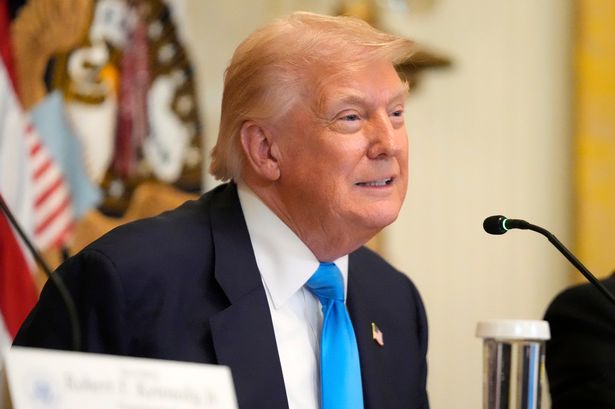The Trump administration has embarked on a significant push to modernize the nation’s healthcare system, encouraging millions of Americans to transition their personal health information and medical records to advanced digital applications and new systems. This ambitious initiative, however, recently faced an awkward moment during a public healthcare roundtable, drawing widespread attention and public commentary.
During the high-profile discussion, former President Trump appeared visibly fatigued, struggling to keep his eyes open as Dr. Mehmet Oz, then Administrator for the Centers for Medicare and Medicaid Services, articulated the vision for healthcare reform. Spectators noted instances where the president seemed to nod in agreement, even while Dr. Oz elaborated on the “outdated” nature of current healthcare information infrastructures.
Such public gaffes have become a notable feature of the administration’s public appearances, frequently sparking immediate reactions and humorous commentary across social media platforms. Following this particular roundtable, platforms like X (formerly Twitter) were abuzz with users cracking jokes and sharing observations, with journalist Aaron Rupar notably posting, “Trump is fighting for his life to stay awake during this roundtable event.”
At the heart of this comprehensive digital healthcare initiative is the administration’s drive to empower patients through greater access to their medical records and enhanced wellness monitoring tools. This vision necessitates the secure transfer of extensive patient data to state-of-the-art applications and systems, predominantly operated by private sector technology businesses.
The new framework aims to integrate a diverse array of public health tech solutions. Key areas of focus include sophisticated applications for diabetes and weight control, conversational AI designed to assist patients with their health queries, and innovative digital tools such as QR codes and specialized apps facilitating appointment scheduling and prescription monitoring.
This transformative effort, spearheaded by the Trump administration, introduces a complex dynamic where patients’ deeply held expectations for patient data privacy could potentially clash with their desire for increased convenience and accessibility within their healthcare experience. This tension is particularly pertinent given past instances where sensitive American data has been shared in ways that have tested legal boundaries.
Articulating the core objective of the program, Dr. Mehmet Oz, in his capacity as CMS Administrator, stated, “We have the tools and information available now to empower patients to improve their outcomes and their healthcare experience.” This statement underscores the administration’s belief in technology’s power to revolutionize personal health management.
Furthermore, major players in the wellness industry are actively signing onto this progressive initiative. For instance, Noom, a widely recognized weight loss and exercise subscription service, is slated to gain the capability to access medical records following the system’s anticipated rollout early next year, signaling a significant shift in how personal health information will be utilized and shared across platforms.





Leave a Reply